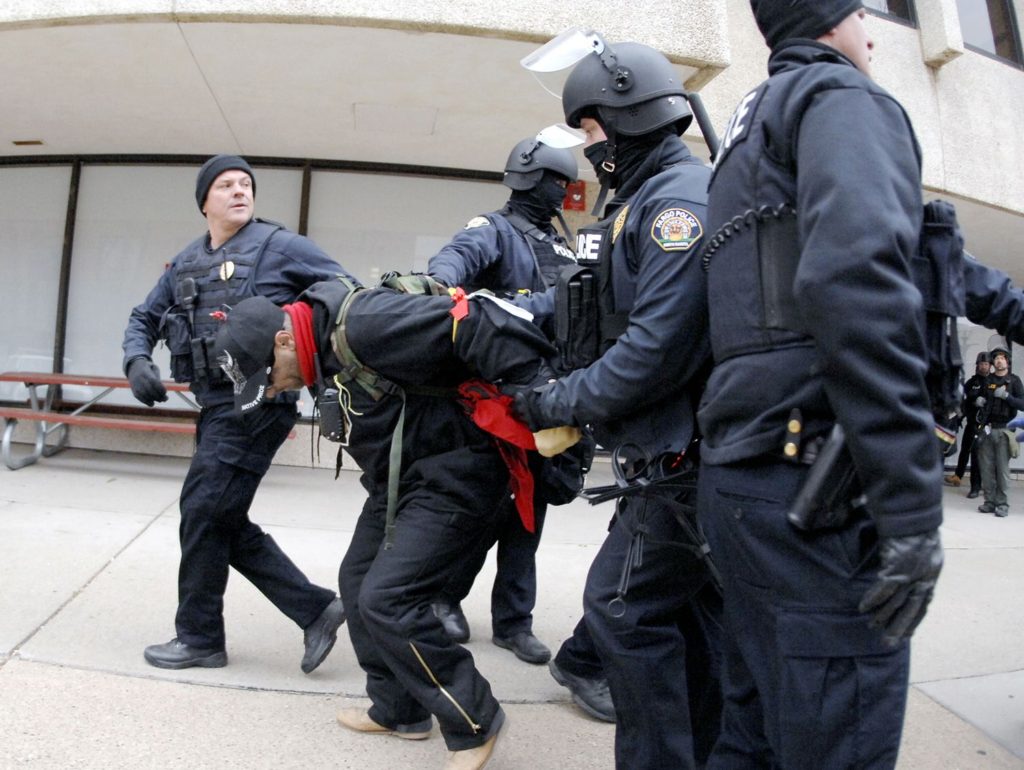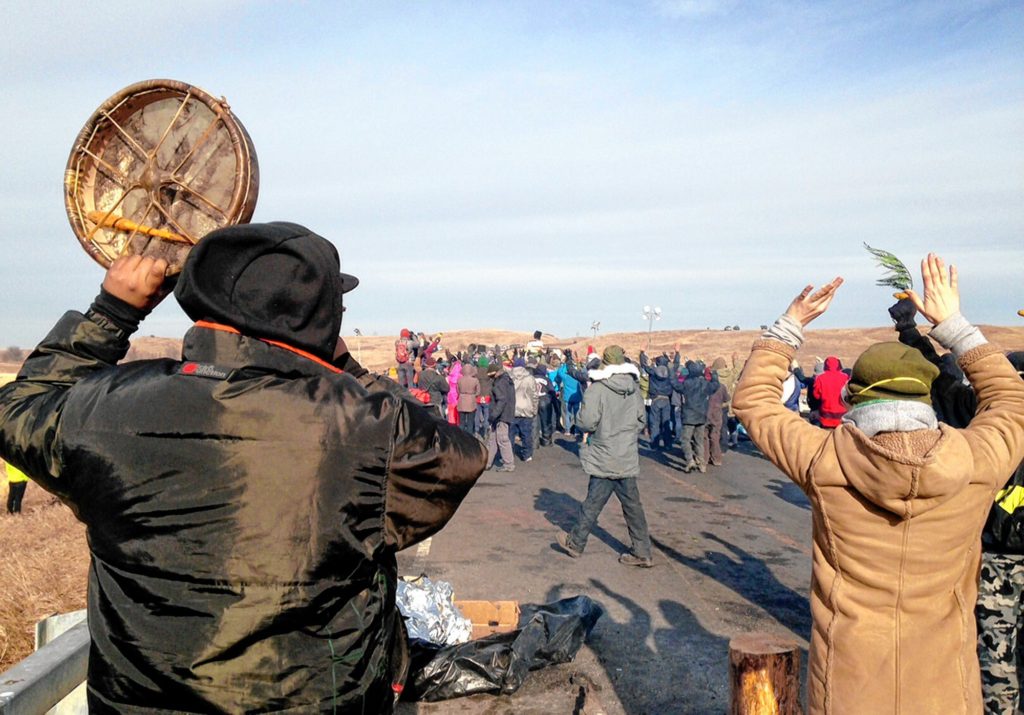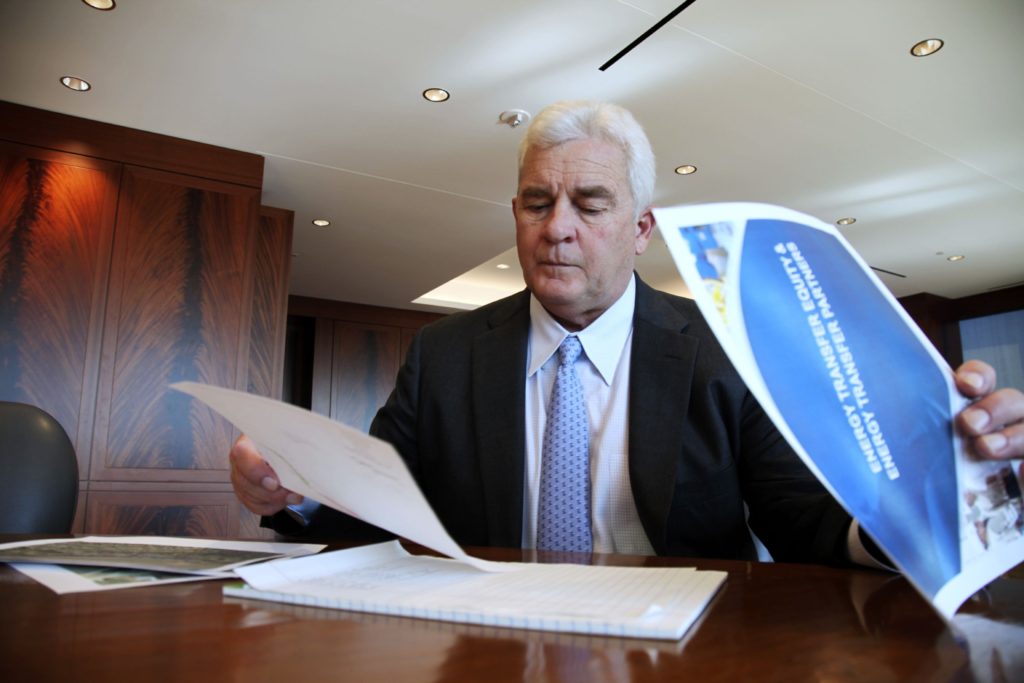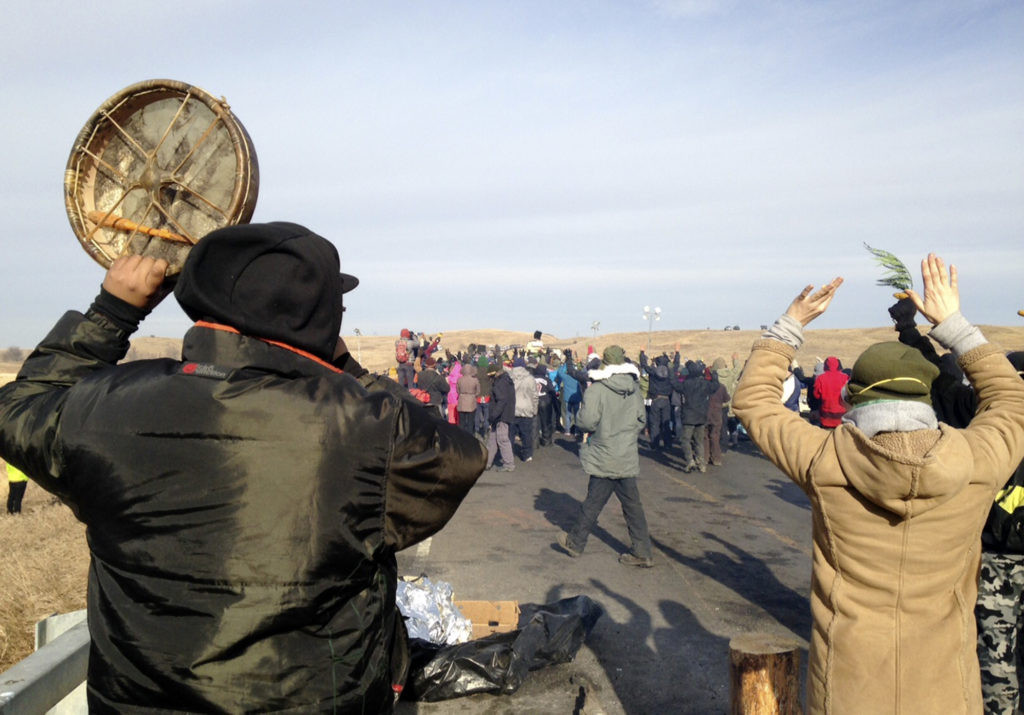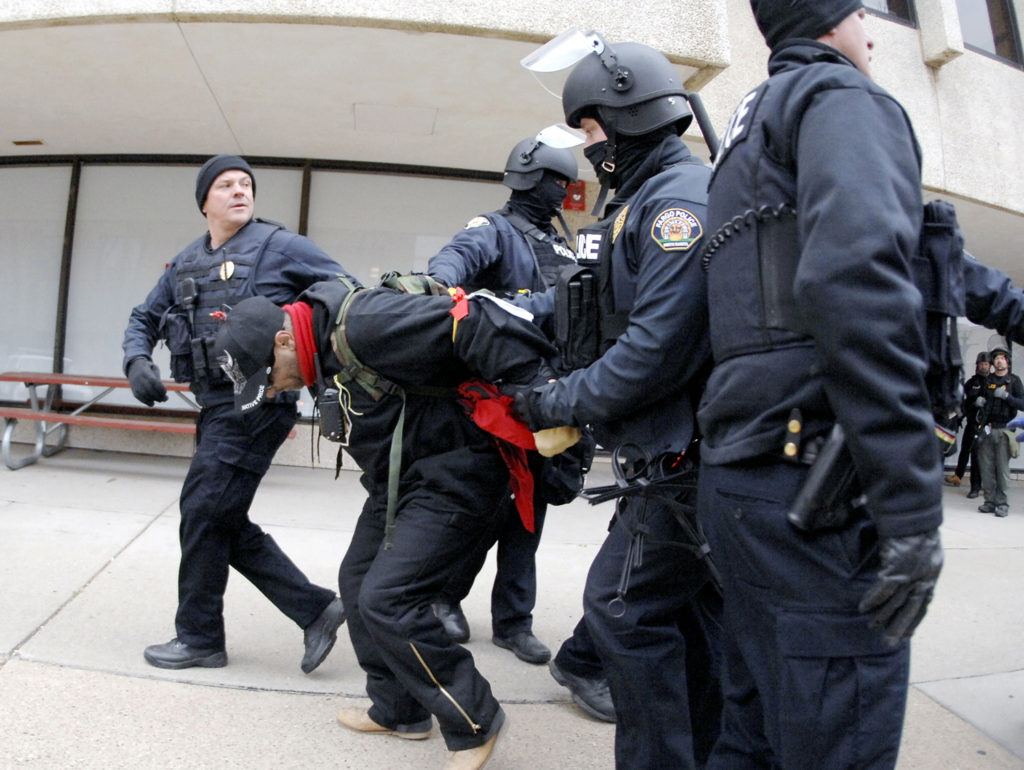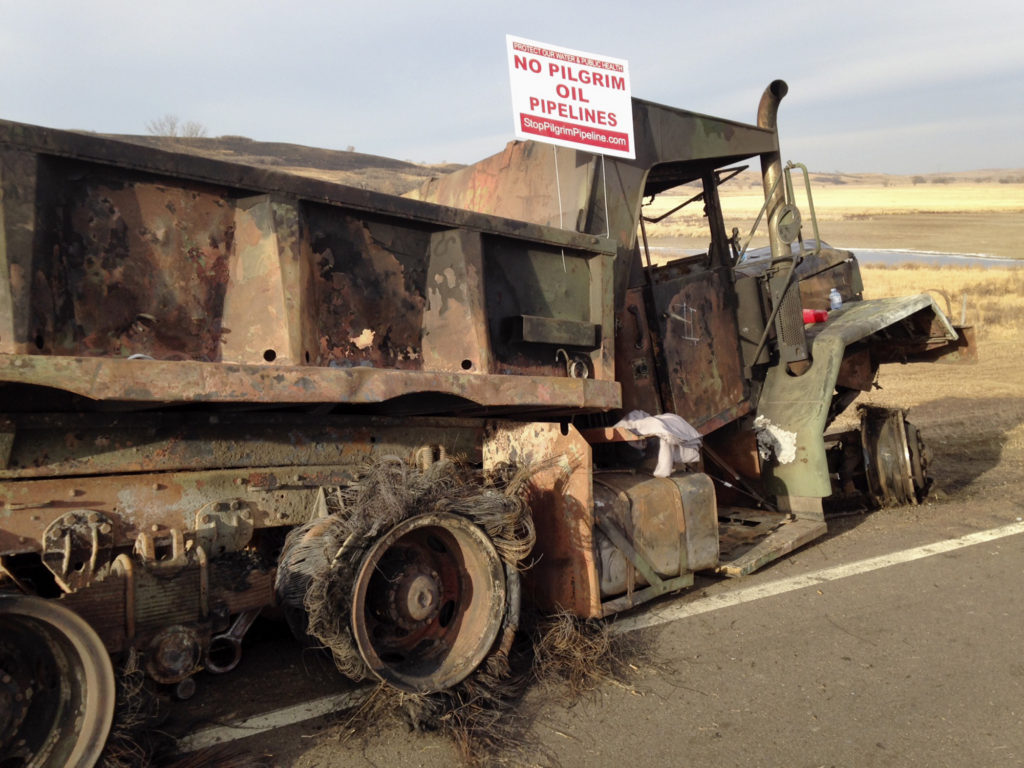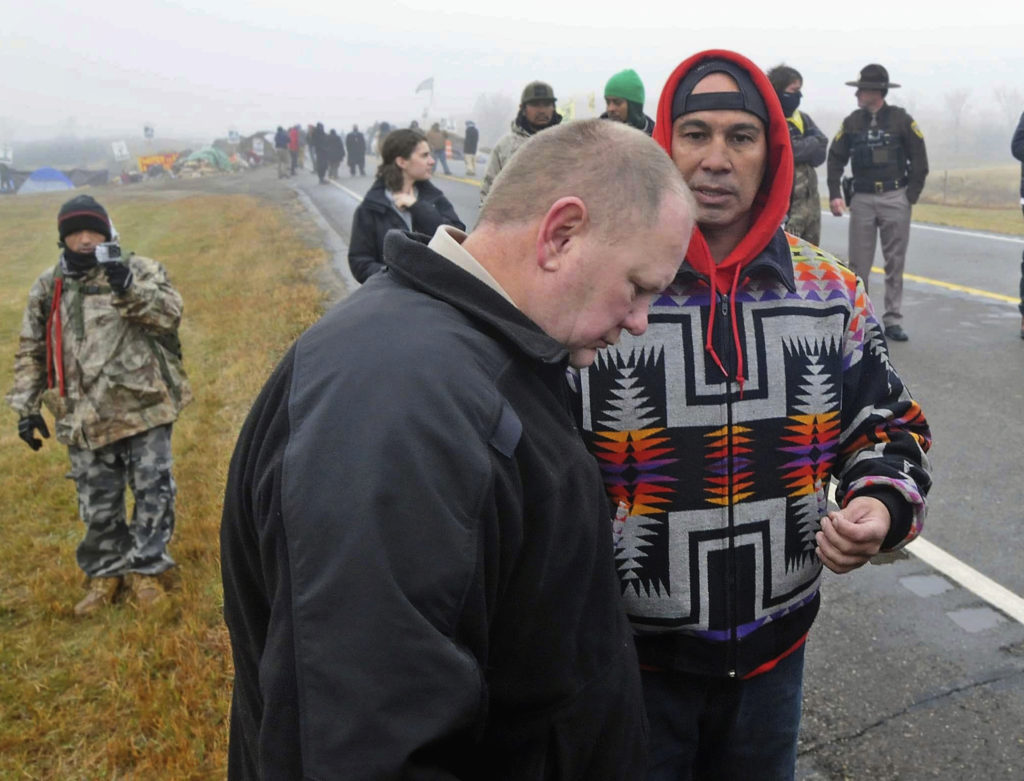Protesters clumped together like Gore-Tex penguins on the North Dakota, bridge.
On Nov. 18, hundreds of people congregated at Backwater Bridge, in the path of Dakota Access Pipeline construction, to pray — and if their prayers happened to get in the way of an oil company’s progress, that was merely a winking coincidence.
“The camp where we stayed, it’s basically a functioning city,” said Meyer, who left for North Dakota on Nov. 15 and came back on the 22nd. Meyer said he volunteered to work in one of the camp’s six kitchens, but there were schools, a construction crew, journalists, and medics there, too.
“There were thousands of people,” said Meyer. “Everyone was really friendly. While we were there, it was the opposite of what you heard about ” the night of the police-protester confrontation.
Meyer left the day of Nov. 20, hours before police used water cannons and rubber bullets to drive advancing protesters back, and just a few days before a protester had her arm severely injured during a confrontation between police and protesters, according to media reports.
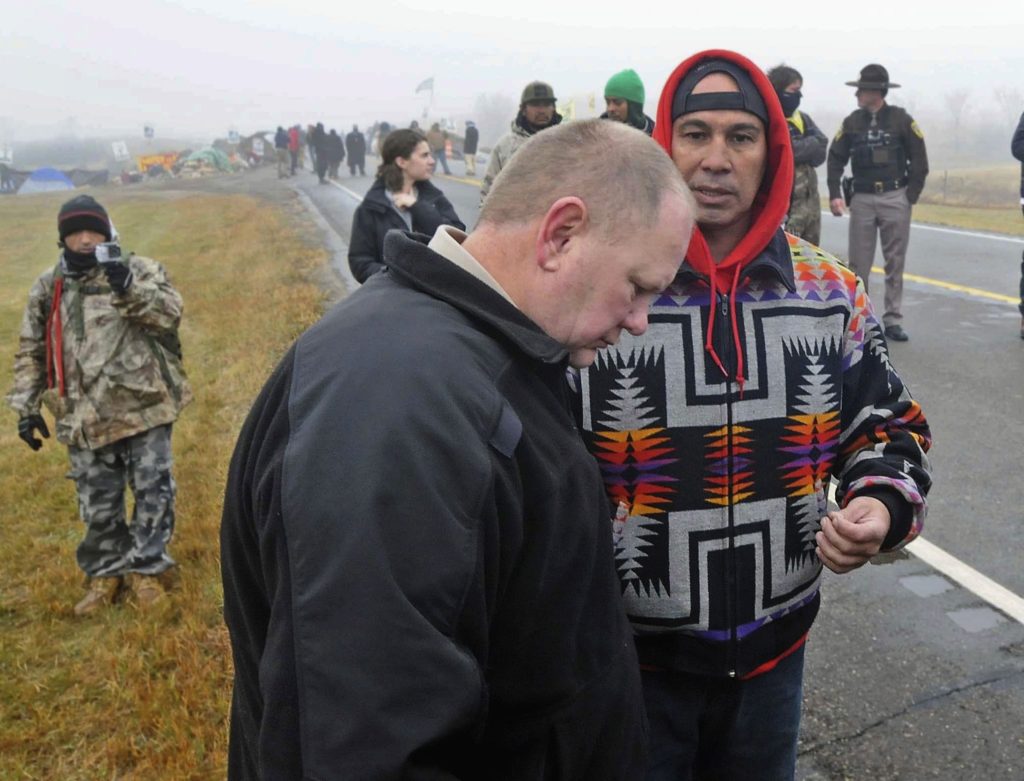
FILE – In this Oct. 26, 2016 file photo, Morton County Sheriff Kyle Kirchmeier, front, listens to Brian Wesley Horinek, of Oklahoma, outside the New Camp on Pipeline Easement in North Dakota. Kirchmeier, who has led the police response to the Dakota Access oil pipeline, is a law enforcement lifer, a veteran of the North Dakota State Patrol and National Guard before being elected to his first term as Morton County sheriff. (Tom Stromme/The Bismarck Tribune via AP, File) /The Bismarck Tribune via AP)
The protest has been led by Native Americans who are worried because the pipeline skims the boundaries of a Sioux reservation, is slated for construction through sacred land, and will cross under the Missouri River — a source of drinking water for the 18,000 Native Americans living at Standing Rock reservation. Oil leaks, protesters say, could poison the water supply and destroy the land.
In a small win for protesters, the U.S. Army Corps of Engineers said in November the pipeline cannot be completed until additional research into environmental risks is finished. And in a loss for protesters, on Nov. 28, the corps issued an order to protesters saying they need to clear out of the way by Dec. 5 or face arrest.
Those in favor of construction say the pipeline will enable domestic production of crude oil — described as “light” and “sweet” on Energy Transfer Partners’ website — that will be more cost-effective, safer, and environmentally sound than transporting oil by trains or trucks.
Even if they won’t say it, it seems Energy Transfer Partners has concerns about the potential for their pipes to leak. In the company’s earlier plans, the pipeline’s pathway was close to Bismarck, but it was rerouted to the Sioux area, in part, out of concern that the pipeline could pollute the city’s water supply, according to the Bismarck Tribune.
As clean water resources become more scarce due to climate change, pollution, and population growth, it is unacceptable for the U.S. to gamble with a vital resource of the Standing Rock reservation.
About 1.2 billion people live in areas with chronic water scarcity worldwide, according to the Water Project. In the U.S. California is suffering through a mighty drought. And in Western Mass, about 70 percent of the communities are in “severe drought,” according to the U.S. Drought Monitor.
Meanwhile, the U.S. holds greater oil reserves than Saudi Arabia and Russia, according to a 2016 study by Rystad Energy. The independent gas and oil consulting firm estimates the U.S. has 264 billion barrels of oil in reserve while Russia has 256 billion and Saudi Arabia has 212 billion.
Why are we setting our tap water on fire with fracking and polluting our rivers with old leaking pipes when water is far more important to life? When will we have enough bloody oil?
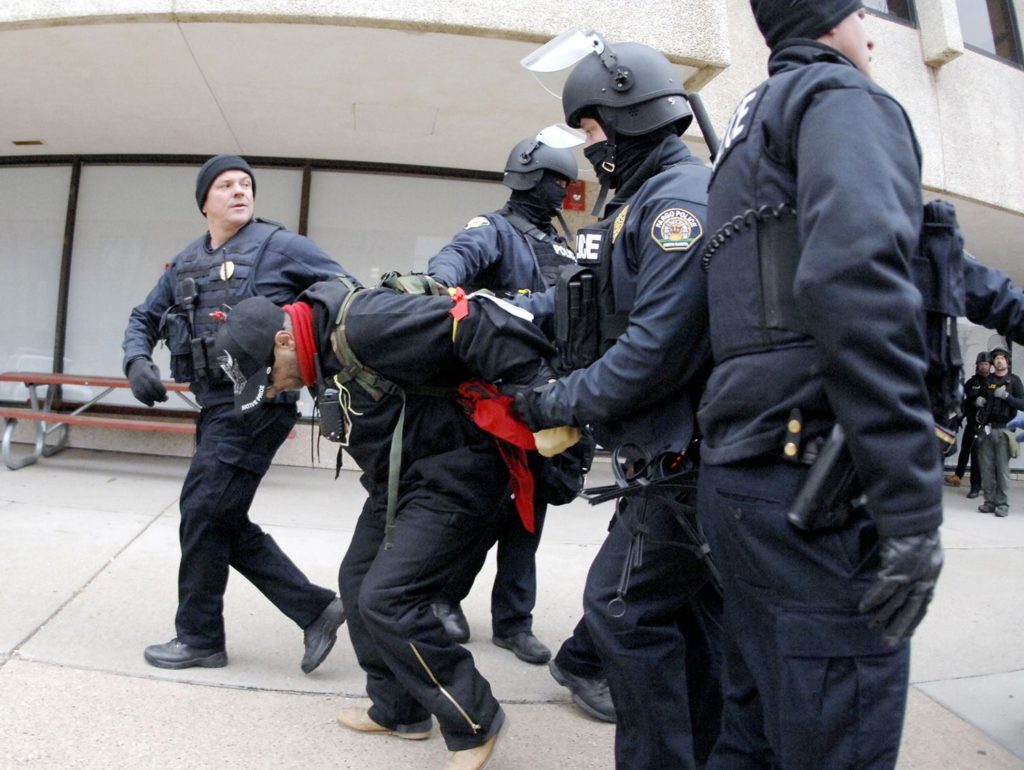
Michael Giron, from California, is arrested by law enforcement as he was leading a procession of Dakota Access Pipeline protesters at one of the Wells Fargo Bank branches in Bismarck, N.D. North Dakota on Thursday, Nov. 17, 2016. Ongoing protests of the four-state, 3.8 million pipeline in southern North Dakota have “significantly strained” law enforcement and the state Highway Patrol, which provides security at the state Capitol, Republican House Majority Leader Al Carlson said. (Mike Mccleary/The Bismarck Tribune via AP)
Protesters have been attempting to halt construction for at least eight months at the site, about 30 miles outside of Bismarck, but media reports about the conditions there have been sparse.
Meyer said even being at the camp — it was difficult to get a handle on what’s going on. For example, he couldn’t get a clear answer on who set fire to a bunch of trucks that, when he was there, served as a wall between protesters and police. He said he heard from protesters back at the camp that the Sunday night clash happened when protesters attempted to move the burned-out trucks from the road to advance farther down the street toward construction.
“People were doing a direct action when they attempted to move the vehicles blocking the road and, you know, it’s a non-violent action,” Meyer said. The police actions “were against the people who were taking an action, rather than this was just some indiscriminate action against the entire camp.”
Meyer said he joined the protesters, who have been picketing construction because his Hampshire College friend, Jesse French, who also made the trip with alumna Stephanie Jacco, had convinced him to go.
“He had it in his heart he wanted to get out there,” Meyer said. “As soon as I got there, for me, it definitely enforced a resolve that I’m going to continue the struggle back home to make sure this is a bigger part of my life.”
The Native Americans have good reason to be concerned about the pipeline — we all have good reason to be concerned: Since 2009, the annual number of significant accidents on oil and petroleum pipelines has shot up by almost 60 percent, which is about the same rise U.S. crude oil production experienced over the same amount of time, according an analysis of federal data by The Associated Press.
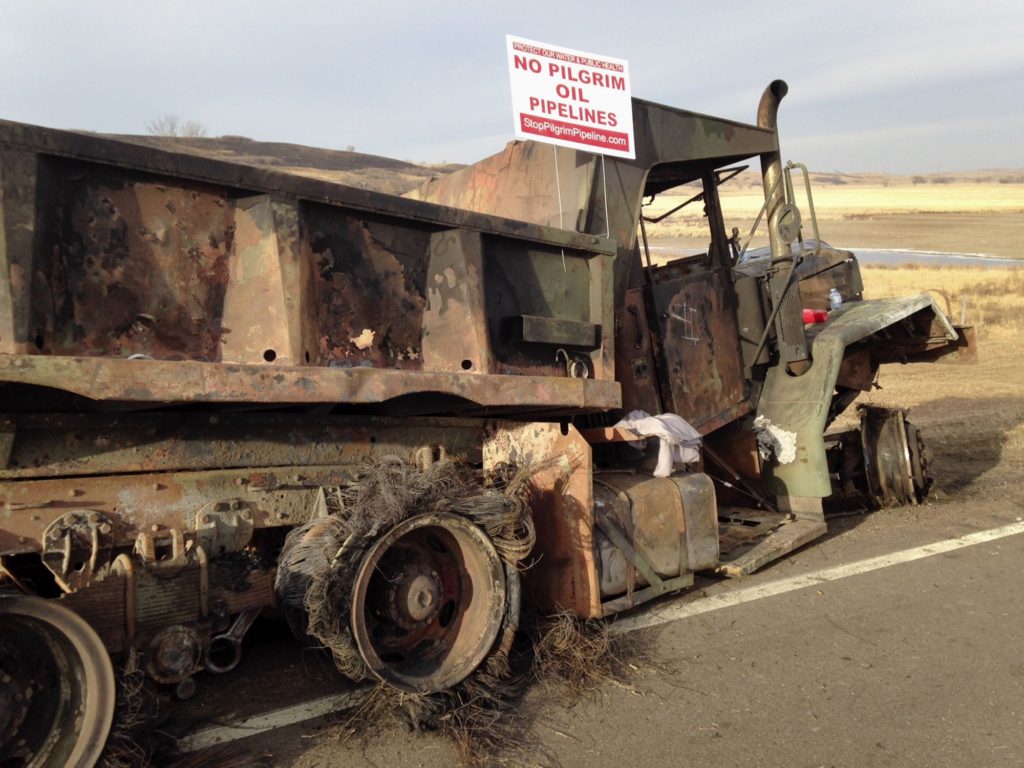
A burned-out truck is seen Monday, Nov. 21, 2016, where protesters against the Dakota Access oil pipeline removed it from from a long-closed bridge on a state highway near Cannon Ball, N.D., close to their camp in southern North Dakota. Their efforts led to the latest skirmish between protesters and law officers late Sunday and early Monday. (AP Photo/James MacPherson)
Since 2010, over 3,300 incidents of crude oil and liquefied natural gas leaks or ruptures have occurred on U.S. pipelines, according to the Center for Effective Government, a D.C.-based environmental advocacy group. The incidents killed 80 people and injured 389. This is in addition to the toxic chemicals the leaks and spills dump into our soil, waterways, and air.
As energy infrastructure ages, New England, and much of the U.S., is facing an energy delivery crisis. There is more demand for power than the system is capable of pumping. I get that. Protesters get that. The answer can’t be more oil and it sure as hell can’t be more fracked oil. The U.S. wants investment in clean energy development, infrastructure, and jobs. We want change, not more of the same. Sacrificing scarce resources for an outdated and harmful form of energy is foolish.
Kristin Palpini, editor@valleyadvocate.com.
Ways to Help Right Now
Call North Dakota Gov. Jack Dalrymple, (701) 328-2200, to express solidarity for water protection.
Call the Morton County Sheriffs Department, (701) 667-3330, to ask them to demilitarize protest control.
Call the Army Corps of Engineers, (202) 761-5902, to get them to protect water.
Visit ocetisakowincamp.org to support protesters.

